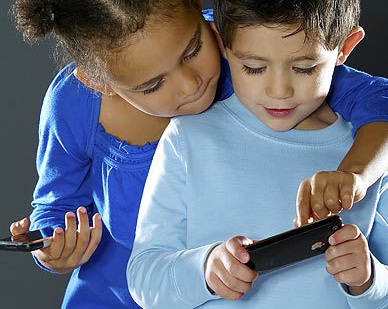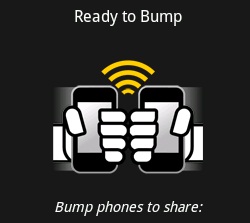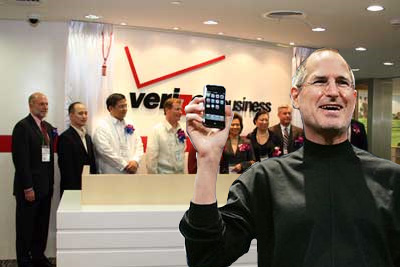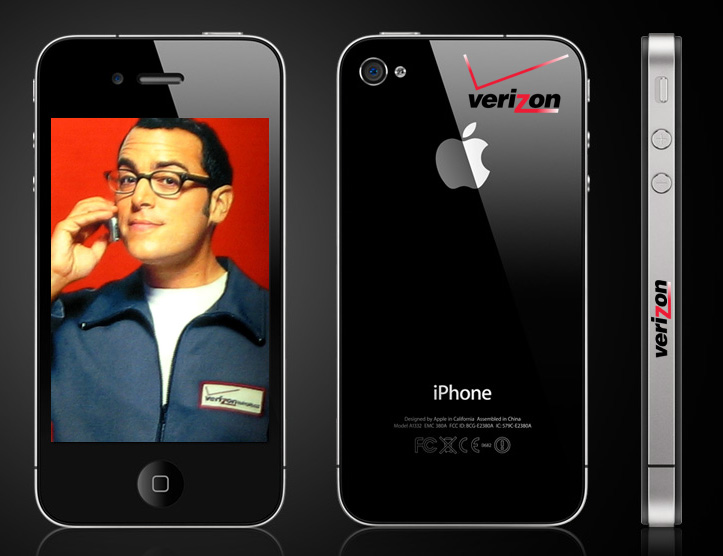There are so many stats, studies, and graphics depicting the rise of Android and the continued success of Blackberry that we won’t mention them here. They’re all meaningless until we see a Verizon iPhone. When it comes, we’ll finally see how Android and Blackberry truly stack up to the iPhone.
Speculations are rampant about when it will arrive. Some are now saying February. In true Apple fashion, the news will come when it comes and buildup to Steve Jobs standing on stage smiling with a huge Verizon logo in the background will not be necessary. It will have the fanfare of a product launch and everyone will be covering it.
Few (if any) doubt the impact on AT&T. With the worst Consumer Reports ratings of any mobile service provider, users have been begging for another carrier since before the original iPhone launch. There is a perspective that this may actually be a good thing for AT&T, but that’s another story.
Here, we’ll focus on Android and Blackberry. Verizon has long been an anchor for phones running the Android OS and Blackberry units. Some (myself included) have longed for an iPhone but went with a Droid or Blackberry because of the coverage (or lack thereof) that AT&T has in major cities. And there lies the question: will we switch phones when the iPhone is available or have Android or Blackberry impressed us enough to keep?
iPhone = Unique
 Verizon currently offers 6 Blackberry and 22 Android phones. There are big ones, small ones, sliders, touchscreens, and enough options to fit whatever one holds as a smartphone expectation.
Verizon currently offers 6 Blackberry and 22 Android phones. There are big ones, small ones, sliders, touchscreens, and enough options to fit whatever one holds as a smartphone expectation.
There is only one iPhone. Even the different versions work basically the same.
In most cases, variety and choice is a good thing. In smartphones, it’s not. If you ask the average tech-savvy smartphoner the difference between a Motorola Droid X and a Samsung Fascinate Galaxy S, few could tell you. Ask the same question of a Blackberry Curve and a Blackberry Bold, the answer would possibly be, “One is curved?”
Ask someone what the difference is between an iPhone and any of the 29 (yes, there is still a Palm in the mix) smartphones that Verizon offers, the answer would be, “One’s an iPhone, the others are not.”
iPhone = Inclusion
 Despite public service announcements telling kids to be themselves and not follow the crowd, when one kid has an iPhone, all of her friends want an iPhone. The same isn’t necessarily true with other phones. iPhone users are able to interact with other iPhone users in ways that they proudly publicize. The other phones have this same ability, but it just isn’t the same.
Despite public service announcements telling kids to be themselves and not follow the crowd, when one kid has an iPhone, all of her friends want an iPhone. The same isn’t necessarily true with other phones. iPhone users are able to interact with other iPhone users in ways that they proudly publicize. The other phones have this same ability, but it just isn’t the same.
Driving a BMW means something. Wearing Tommy Hilfiger means something. Drinking Starbucks means something.
Having an iPhone means something.
What that is, few truly understand. It goes deep into the psychology of desired brands versus useful products, but that’s not something for here other than to highlight that owning an iPhone means being included an a “club” that has benefits (even if those benefits are rarely understood or even know).
Apps = Relatively Meaningless
 The App race is reminiscent of the Cold War arms race. “You got apps? We got apps. Who wins?”
The App race is reminiscent of the Cold War arms race. “You got apps? We got apps. Who wins?”
In this case, the consumers win. There are very few things (okay, there’s over 100,000 more iPhone Apps than Android, but does anyone really use them?) that an iPhone can do that an Android phone cannot and visa versa. Android (and others such as Blackberry and Microsoft) have plenty of Apps, enough to negate the benefit of the App Store.
A modernized variation of the old catchphrase should read, “There’s an App for that, plus 4 other compatible variations across the different platforms.”
Perception and Marketing Will Rule
 When the Verizon iPhone finally arrives, people will jump ship both from AT&T and other vendors as well as current Verizon smartphone users. The true impact will be dependent on marketing and controlling the perceptions. Apple will blitz us shortly after the announcement as the initial wave of defections starts to slow. Motorola and the others will likely blitz us with ads showing how amazing Android can be. Blackberry will be Blackberry and Palm will try to survive or sell.
When the Verizon iPhone finally arrives, people will jump ship both from AT&T and other vendors as well as current Verizon smartphone users. The true impact will be dependent on marketing and controlling the perceptions. Apple will blitz us shortly after the announcement as the initial wave of defections starts to slow. Motorola and the others will likely blitz us with ads showing how amazing Android can be. Blackberry will be Blackberry and Palm will try to survive or sell.
The numbers will be telling. It will be the first true test of whether iPhone is truly the phone of the future. Will Android’s momentum slow? Will Blackberry’s passionate user-base shift?
It will be a battle that determines the future of all 3 companies.


Leave a Reply